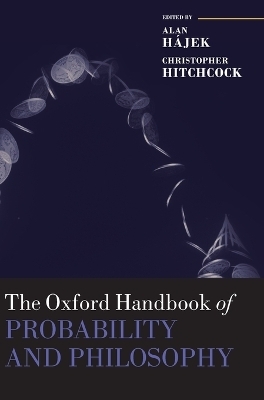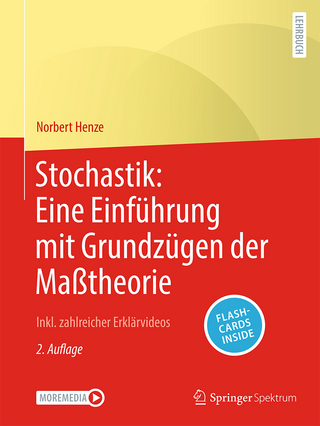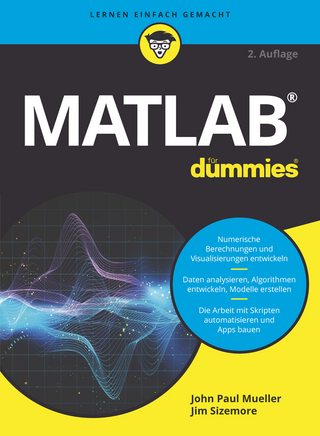
The Oxford Handbook of Probability and Philosophy
Seiten
2016
Oxford University Press (Verlag)
978-0-19-960761-7 (ISBN)
Oxford University Press (Verlag)
978-0-19-960761-7 (ISBN)
Probability theory is a key tool of the physical, mathematical, and social sciences, and is playing an increasingly important role in many areas of philosophy. This Handbook furthers the influence of philosophy on probability, and of probability on philosophy. Nearly forty articles present new insights into the intersection of these two fields.
Probability theory is a key tool of the physical, mathematical, and social sciences. It has also been playing an increasingly significant role in philosophy: in epistemology, philosophy of science, ethics, social philosophy, philosophy of religion, and elsewhere. A case can be made that probability is as vital a part of the philosopher's toolkit as logic. Moreover, there is a fruitful two-way street between probability theory and philosophy: the theory informs much of the work of philosophers, and philosophical inquiry, in turn, has shed considerable light on the theory. This Handbook encapsulates and furthers the influence of philosophy on probability, and of probability on philosophy. Nearly forty articles summarise the state of play and present new insights in various areas of research at the intersection of these two fields. The articles will be of special interest to practitioners of probability who seek a greater understanding of its mathematical and conceptual foundations, and to philosophers who want to get up to speed on the cutting edge of research in this area. There is plenty here to entice philosophical readers who don't work especially on probability but who want to learn more about it and its applications. Indeed, this volume should appeal to the intellectually curious generally; after all, there is much here to be curious about. We do not expect all of this volume's audience to have a thorough training in probability theory. And while probability is relevant to the work of many philosophers, they often do not have much of a background in its formalism. With this in mind, we begin with 'Probability for Everyone--Even Philosophers', a primer on those parts of probability theory that we believe are most important for philosophers to know. The rest of the volume is divided into seven main sections: History; Formalism; Alternatives to Standard Probability Theory; Interpretations and Interpretive Issues; Probabilistic Judgment and Its Applications; Applications of Probability: Science; and Applications of Probability: Philosophy.
Probability theory is a key tool of the physical, mathematical, and social sciences. It has also been playing an increasingly significant role in philosophy: in epistemology, philosophy of science, ethics, social philosophy, philosophy of religion, and elsewhere. A case can be made that probability is as vital a part of the philosopher's toolkit as logic. Moreover, there is a fruitful two-way street between probability theory and philosophy: the theory informs much of the work of philosophers, and philosophical inquiry, in turn, has shed considerable light on the theory. This Handbook encapsulates and furthers the influence of philosophy on probability, and of probability on philosophy. Nearly forty articles summarise the state of play and present new insights in various areas of research at the intersection of these two fields. The articles will be of special interest to practitioners of probability who seek a greater understanding of its mathematical and conceptual foundations, and to philosophers who want to get up to speed on the cutting edge of research in this area. There is plenty here to entice philosophical readers who don't work especially on probability but who want to learn more about it and its applications. Indeed, this volume should appeal to the intellectually curious generally; after all, there is much here to be curious about. We do not expect all of this volume's audience to have a thorough training in probability theory. And while probability is relevant to the work of many philosophers, they often do not have much of a background in its formalism. With this in mind, we begin with 'Probability for Everyone--Even Philosophers', a primer on those parts of probability theory that we believe are most important for philosophers to know. The rest of the volume is divided into seven main sections: History; Formalism; Alternatives to Standard Probability Theory; Interpretations and Interpretive Issues; Probabilistic Judgment and Its Applications; Applications of Probability: Science; and Applications of Probability: Philosophy.
Alan Hájek is Professor of Philosophy at the Australian National University. ; Christopher Hitchcock is J. O. and Juliette Koepfli Professor of Philosophy in the Division of the Humanities and Social Sciences at California Institute of Technology.
HISTORY; FORMALISM; ALTERNATIVES TO STANDARD PROBABILITY THEORY; INTERPRETATIONS AND INTERPRETIVE ISSUES; PROBABILISTIC JUDGMENT AND ITS APPLICATIONS; APPLICATIONS OF PROBABILITY: SCIENCE; APPLICATIONS OF PROBABILITY: PHILOSOPHY
| Erscheint lt. Verlag | 8.9.2016 |
|---|---|
| Reihe/Serie | Oxford Handbooks |
| Verlagsort | Oxford |
| Sprache | englisch |
| Maße | 185 x 252 mm |
| Gewicht | 1604 g |
| Themenwelt | Geisteswissenschaften ► Philosophie |
| Mathematik / Informatik ► Mathematik ► Wahrscheinlichkeit / Kombinatorik | |
| Naturwissenschaften | |
| Wirtschaft ► Betriebswirtschaft / Management ► Allgemeines / Lexika | |
| ISBN-10 | 0-19-960761-3 / 0199607613 |
| ISBN-13 | 978-0-19-960761-7 / 9780199607617 |
| Zustand | Neuware |
| Haben Sie eine Frage zum Produkt? |
Mehr entdecken
aus dem Bereich
aus dem Bereich
Buch | Softcover (2024)
Springer Spektrum (Verlag)
44,99 €
Eine Einführung in die faszinierende Welt des Zufalls
Buch | Softcover (2024)
Springer Spektrum (Verlag)
39,99 €


